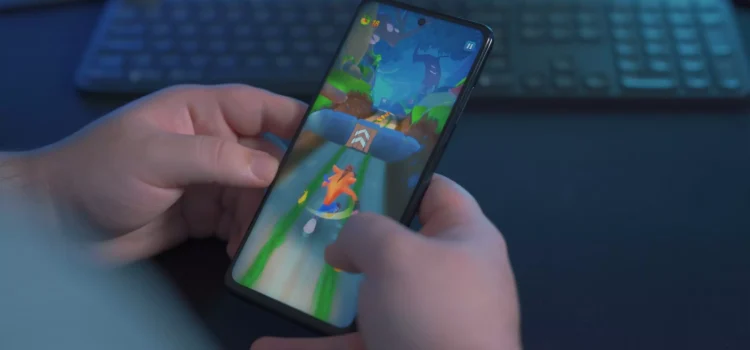The gaming industry has experienced significant change in the past few decades, going from an era of arcade cabinets and home consoles to the digital age of mobile gaming. This shift marks a significant evolution in how games are consumed and experienced. Traditional gaming platforms, once confined to living rooms and arcades, have given way to smartphones, bringing gaming to the palms of millions of people worldwide. This change has redefined the industry, making games more accessible and diverse than ever before. In this article, we look at how convenience, connectivity, and on-the-go entertainment have changed gaming.
The Rise of Mobile Gaming
The rise of mobile gaming has been nothing short of phenomenal, with its accessibility, affordability, and technological advancements in smartphones driving popularity. In recent years, mobile gaming has seen a significant surge, with millions of users worldwide indulging in gaming on their smartphones. This growth has been fueled by easy access to a wide range of titles, from casual puzzles to complex strategy games, appealing to all types of players.
Online poker is just one example of the versatility of mobile gaming. The game has become very popular on mobile platforms, with players forming the best poker hands possible right from their smartphones. A big part of the game of poker is understanding hand rankings, which are determined by the combination of cards held. These rankings range from the high card, which is the lowest, to the royal flush, the highest hand possible in poker. Players can gather all of this information and play poker whenever they want, thanks to advancements in smartphone technology.
Technological Innovations Fueling the Change
Mobile gaming’s popularity owes a lot to technological advancements in smartphones. Enhanced graphics capabilities have transformed mobile screens into vibrant displays, rivaling traditional gaming consoles. Touchscreen technology has introduced intuitive gameplay, allowing for more immersive and interactive experiences. Augmented reality (AR) has been a game-changer, blending the virtual and real worlds, as seen in the global phenomenon of Pokémon GO.
Games like Fortnite and PUBG Mobile have leveraged these technologies to offer console-quality graphics and responsive controls on mobile devices. Continuous software updates and app development have also played a crucial role, constantly refining the gaming experience with new features, improved performance, and expanded game content. This relentless innovation ensures that mobile gaming remains at the forefront of entertainment technology, continually attracting new users and retaining existing ones.
Social and Economic Impact
Mobile gaming has significantly impacted social dynamics and the economy. It has fostered new forms of social interaction, with games like Among Us and Clash of Clans creating communities where players collaborate, compete, and communicate, transcending geographical barriers. Integration with social media platforms has further enabled gamers to share achievements, gameplay tips, and live streams, enhancing the social aspect of gaming.
Economically, mobile gaming has become a lucrative industry, generating substantial revenue through in-app purchases, advertisements, and in-game transactions like skins, characters, and special abilities. The rise of mobile gaming influencers and streamers has also contributed to this economic boom. Influencers on platforms like Twitch and YouTube have amassed large followings by streaming mobile games, influencing gaming trends, and driving game downloads. This has created new career opportunities and a marketing avenue for game developers, further fueling the industry’s growth.
Future of Mobile Gaming

Mobile gaming is poised for groundbreaking advancements, with virtual reality (VR) integration at the forefront. This evolution will blur the lines between the real and virtual worlds, offering an immersive experience that rivals traditional gaming platforms. As VR technology becomes more accessible and affordable, mobile games will likely incorporate VR elements, enhancing the depth and interactivity of gameplay.
Additionally, advancements in smartphone hardware, like faster processors and enhanced graphics, will continue to narrow the gap between mobile and traditional gaming. This technological leap will enable mobile games to offer complex, richly detailed environments and sophisticated gameplay mechanics previously exclusive to PCs and consoles. The potential for mobile gaming to match or even surpass the traditional gaming experience is an exciting prospect, signaling a new era in the gaming industry.

















